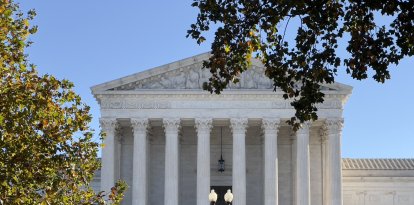House Judiciary Committee sues Merrick Garland for not releasing the audios of the interview between Biden and Hur
According to the text submitted to the Judiciary, the invocation of executive privilege argued by the White House "lacks merit." In addition, the Committee led by Jim Jordan stressed the importance of the "verbal and non-verbal context" of the dialogue between the president and the special prosecutor who investigated the case of the classified documents.

The unfolding drama between Merrick Garland and House Republicans over the audio of the interview between Joe Biden and Robert Hur has officially reached the courts. Republicans on the House Judiciary Committee sued the attorney general for refusing to turn over the requested material in February.
The suit against Garland was filed Monday with the U.S. District Court for the District of Columbia and seeks to overturn the assertion of privilege on which pretext the White House is withholding the recordings.
The Committee asserts that the interview recordings are better evidence than transcripts of what happened during the Special Counsel’s interviews with President Biden and Mr. Zwonitzer (the President's ghostwriter)."
"For example, they contain verbal and nonverbal context that is missing from a cold transcript. That verbal and nonverbal context is quite important here because the Special Counsel relied on the way that President Biden presented himself during their interview – ‘as a sympathetic, well-meaning, elderly man with a poor memory’ – when ultimately recommending that President Biden should not be prosecuted for unlawfully retaining and disclosing classified information", they added in the lawsuit.
In mid-June, the DOJ confirmed that it would not prosecute Garland for contempt, as requested by the House of Representatives. They informed House Speaker Mike Johnson in a letter stating that Garland's actions "did not constitute a criminal offense".
Just hours later, Johnson announced that they would seek to bring the case to justice, and the suit eventually materialized.
The Biden administration's attorney general should have turned over the requested documents on February 19, at the express request of Congressmen Jim Jordan, James Comer and Jason Smith, chairmen of the Judiciary, Oversight and Ways and Means Committees, respectively.
The request sought the release of all documents and communications, including audio and video recordings, related to Hur's interview with Biden, as well as those of the interview conducted with Zwonitzer.
Robert Hur's report on Joe Biden
After more than a year of interviews and investigation, the special counsel released his 379-page report in which he wrote that Biden "willfully retained and disclosed classified materials after his vice presidency when he was a private citizen." However, he clarified that it was not enough to file charges.
The report also included detailed photographs of documents in the president's garage, which included "top secret/sensitive compartmentalized information" related to foreign policy in Afghanistan.
Hur dedicated one of the sections of the letter to the president's memory, which, he wrote, "appeared to have significant limitations." He came to this conclusion citing an interview and recorded conversations with Biden's speechwriter.
"(Biden) did not remember when he was vice president. He did not remember, even within several years, when his son Beau died. And his memory appeared hazy when describing the Afghanistan debate that was once so important to him," the report states.
"We have also considered that, at trial, Mr. Biden would likely present himself to a jury, as he did during our interview, as a sympathetic, well-meaning, elderly man with a poor memory," Hur added.



























